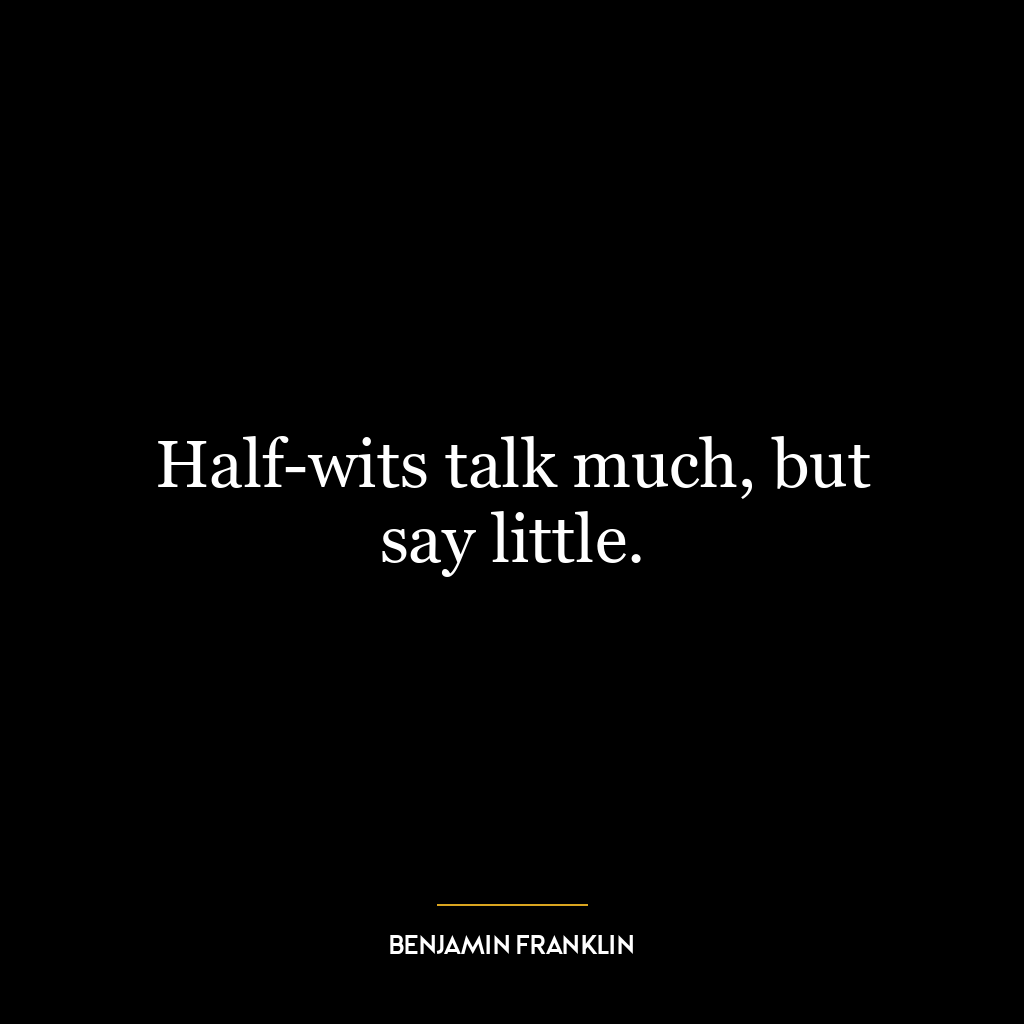Half-wits talk much, but say little.
“Half-wits talk much, but say little” is a timeless aphorism that underscores the discrepancy between the quantity of words spoken and the quality of ideas conveyed. It suggests that individuals who speak excessively often lack substance in their speech, while those who say less may actually convey more meaningful and valuable thoughts.
Delving deeper, this quote can be interpreted as a critique of superficiality and verbosity. It’s an admonition against empty chatter and a call for meaningful, thoughtful communication. It implies that wisdom isn’t measured by the volume of one’s speech, but by the weight and substance of one’s words. In essence, it’s not about how much you say, but what you say and how you say it.
Applying this in today’s context, it can be seen as a commentary on our information-saturated society. In the age of social media and 24/7 news cycles, we are often overwhelmed with a barrage of words, yet starved for meaningful dialogue and deep insights. This quote reminds us to be discerning consumers of information, to seek quality over quantity, and to value thoughtful discourse over mindless chatter.
In terms of personal development, this quote encourages self-awareness and mindfulness in communication. It prompts us to think before we speak, to ensure that our words add value to the conversation and aren’t just filling the silence. It also encourages us to listen more and speak less, to learn from others, and to cultivate depth and substance in our thoughts and speech. Ultimately, it’s a call to strive for wisdom, depth, and substance in our communications and interactions.












